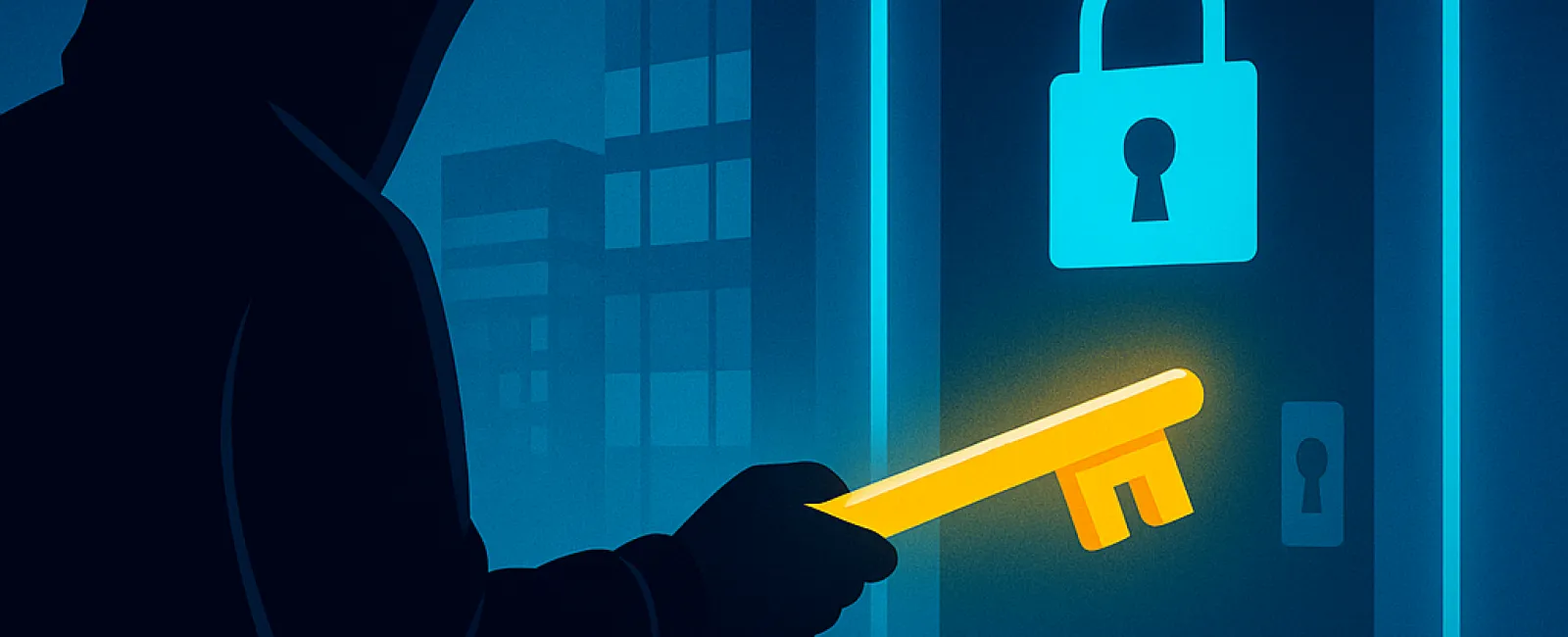August 04, 2025
Cybercriminals are evolving their tactics against small businesses. Instead of forcefully breaking in, they quietly gain access using stolen login credentials — your digital keys.
This method, known as identity-based attacks, is now the leading technique hackers use to infiltrate systems. They steal passwords, deceive employees with fraudulent emails, or bombard users with login prompts until someone unknowingly grants access. Sadly, this approach is proving highly effective.
Recent data reveals that 67% of major security breaches in 2024 originated from compromised logins. Even industry giants like MGM and Caesars suffered from these attacks the year prior — if they're vulnerable, so is your small business.
How Are Hackers Gaining Access?
Most attacks begin with something as simple as a stolen password, but the strategies are becoming more sophisticated:
· Phishing emails and counterfeit login pages trick employees into revealing their credentials.
· SIM swapping allows criminals to intercept text messages used for two-factor authentication (2FA).
· MFA fatigue attacks flood your device with login requests until someone inadvertently approves access.
Hackers also target personal employee devices and third-party vendors, such as help desks or call centers, as alternative entry points.
Protecting Your Business: Simple Steps That Work
The good news? You don't need advanced tech skills to defend your company. Implementing a few key measures will significantly boost your security:
1. Enable Multifactor Authentication (MFA)
Add an extra layer of security during login. Opt for app-based or hardware key MFA methods, which are far more secure than SMS codes.
2. Educate Your Team
Your employees are the first line of defense. Train them to identify phishing attempts and suspicious activities, and ensure they know how to report concerns immediately.
3. Restrict Access Privileges
Limit user permissions to only what's necessary. If a hacker compromises an account, limited access reduces potential damage.
4. Adopt Strong Password Practices or Go Passwordless
Encourage the use of password managers or advanced authentication methods like biometric logins and security keys that eliminate reliance on passwords.
In Summary
Hackers relentlessly target your login credentials using increasingly clever tactics. Staying protected doesn't mean going it alone.
We're here to help you implement robust security solutions that safeguard your business while keeping operations smooth for your team.
Wondering if your business is at risk? Let's talk. Click here or give us a call at 760-770-5200 to book your Quick and Easy Call.



